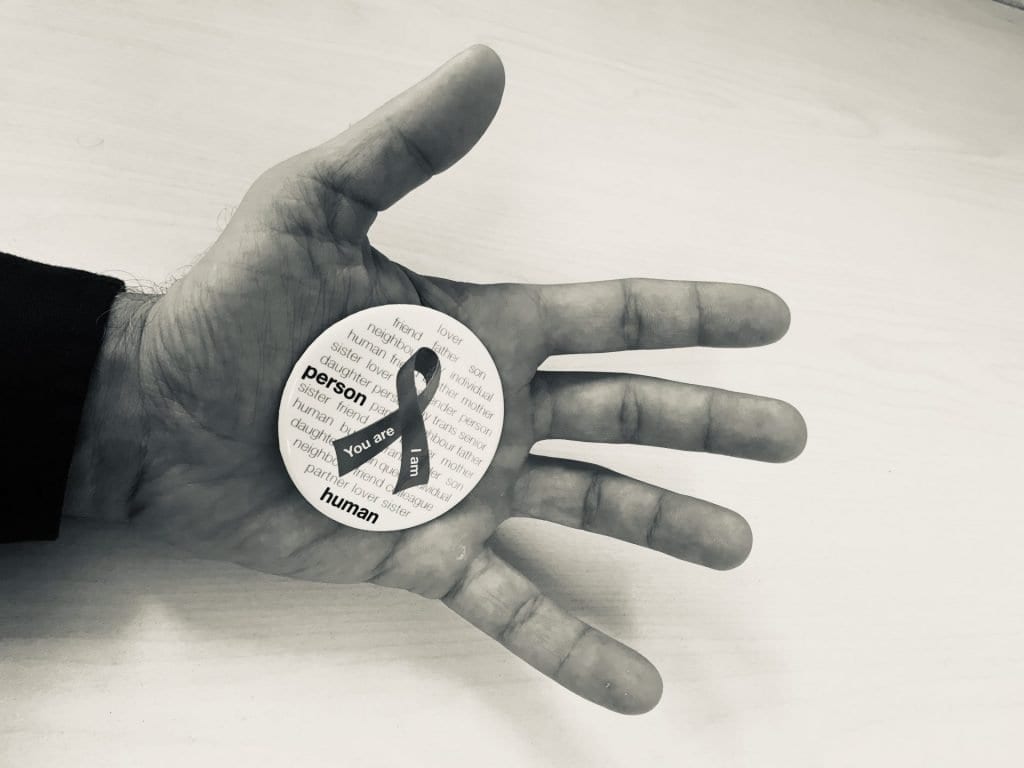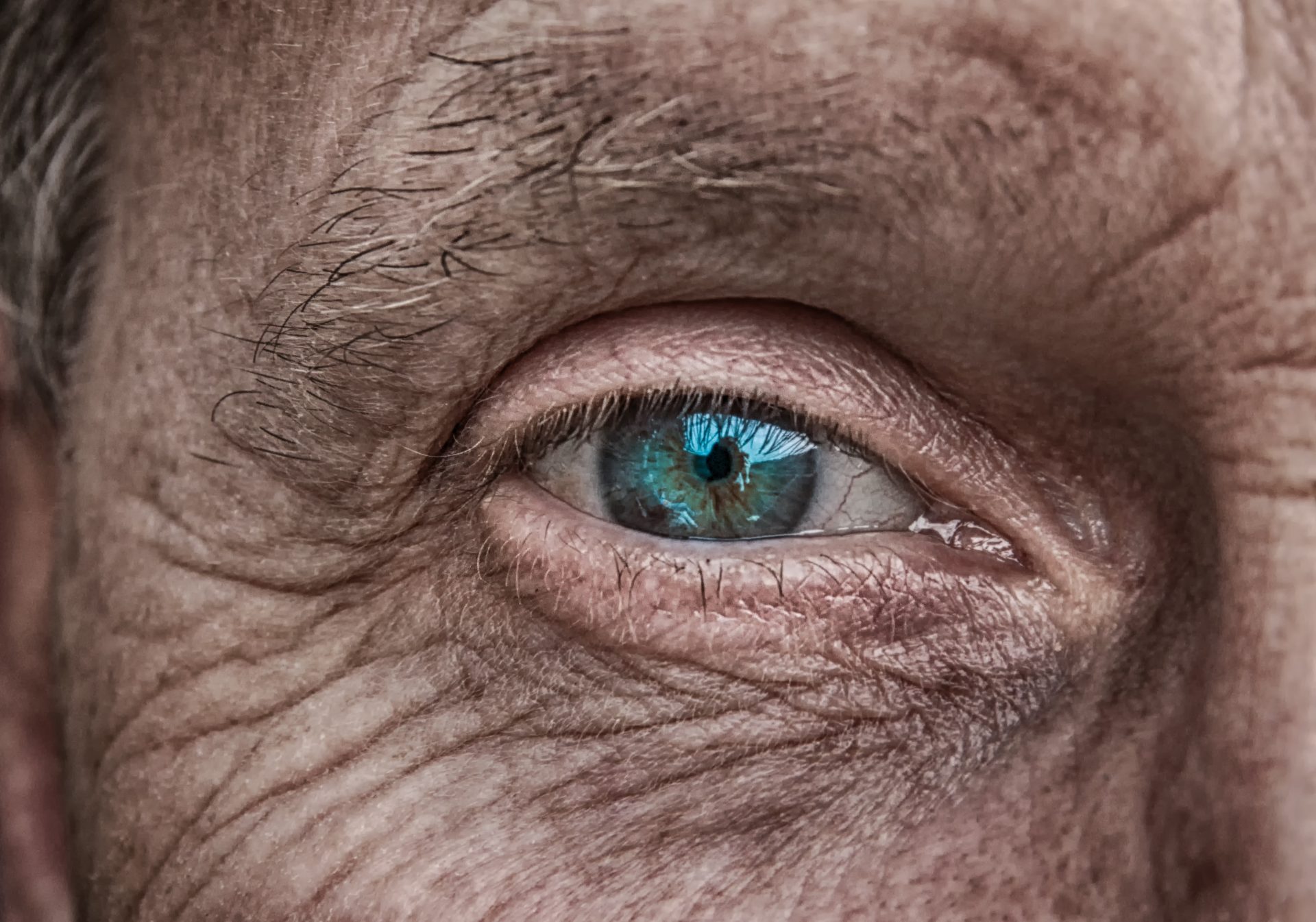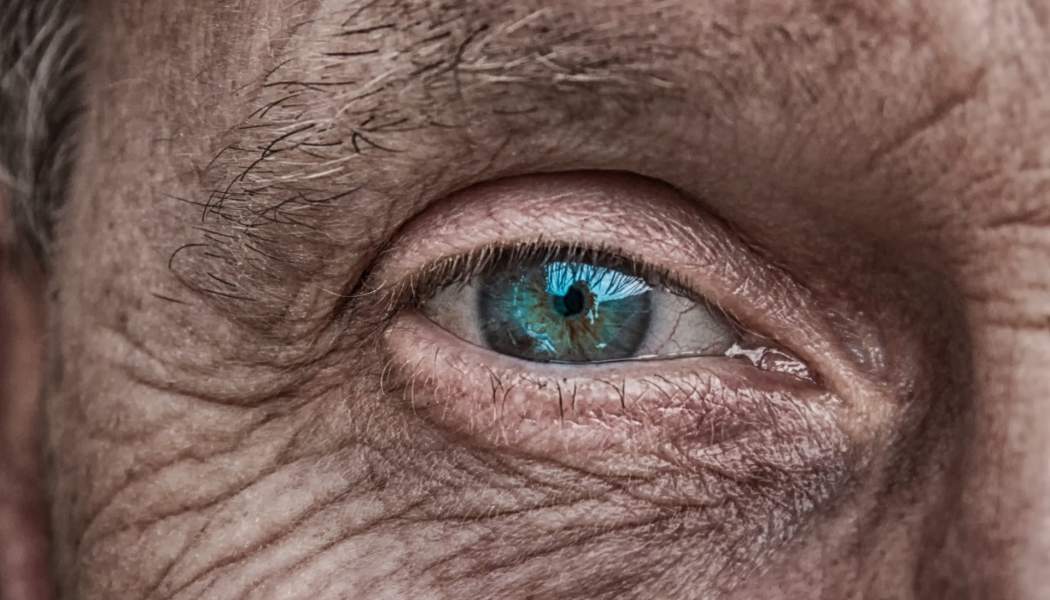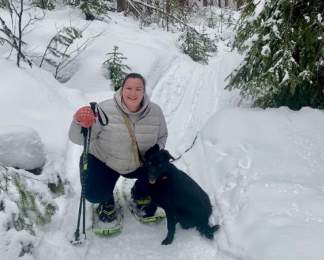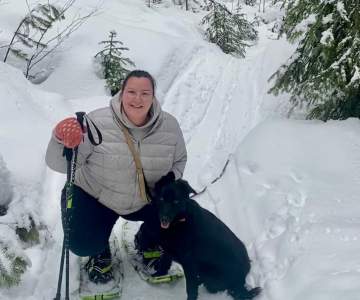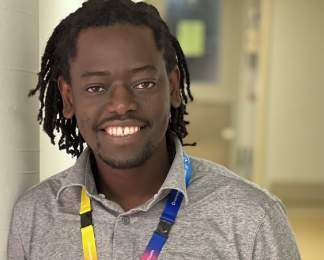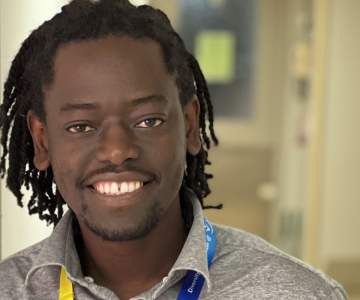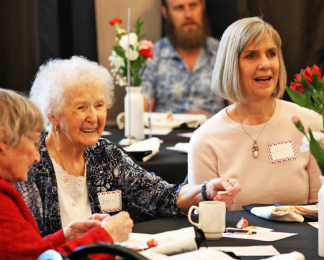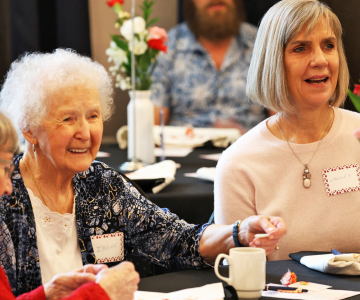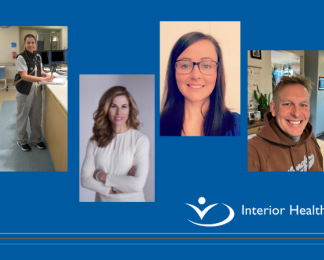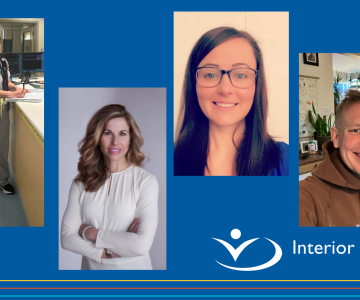At 81, Alan Samuelson is in a unique position to share his story and tell others what he knows about living well with HIV.
In the early 1980s, he was admitted to an Alberta hospital with a ruptured stomach artery. After an urgent call went out through the hospital, staff and visitors provided 29 units of blood. But before 1985, no test existed to screen for HIV and he received a transfusion containing the virus.
“I am grateful to those donors,” says Alan. “They ultimately saved my life.”
His HIV status stayed undiagnosed for close to three decades. The virus stayed dormant initially, but Alan did experience recurring symptoms over the years: high temperature, headache, nausea and diarrhea.
Finally, in 2014, while living in Salmon Arm, Alan had 13 infections over the span of 13 months. A physician told Alan they were going to get to the bottom of it. He was shocked when tests returned a result of HIV positive.
When Alan returned home and told his wife of his diagnosis, she said, “I’m so glad to hear that. Now we can treat it, and you won’t be sick anymore.”
They informed their four grown-up children of their father’s diagnosis and she went for her own HIV test, which thankfully turned out to be negative.
“My family was totally accepting and supportive,” says Alan. “I am grateful for that.”
However, Alan was careful about disclosing his diagnosis to his neighbours and friends.
Disclosing can have many reactions. People can drop you as a friend. Other people have experienced losing their spouses or families or jobs.
—Alan Samuelson
To access support and community programs, Alan connected with Interior Health’s HIV and Health Outreach Team. He went on to join an Interior Health committee and a provincial committee working to understand HIV stigma, examine strategies and factors to reduce stigma, and improve services for people living with HIV.
“I was happy to provide my perspective on living with HIV. It’s helped me come a long way disclosing my illness.”
The peak of his journey to confront stigma came this past year. Alan had worked as a pharmacist in B.C. for 12 years. After disclosing his diagnosis to a few close colleagues, they encouraged him to share his lived experience with the Pharmacists of BC at one of their upcoming meetings.
It took considerable courage for Alan to stand in front of 161 pharmacists in February 2019 and tell his story. He also offered his perspective on how to discuss HIV with a patient, following a prescribed drug program, and potential drug interactions.
The feedback from pharmacists was overwhelmingly positive. One pharmacist wrote that Alan’s presentation was “an excellent reminder that we, as health-care professionals, are dealing with people every day and to acknowledge their journey and emotions versus just treating their medical conditions.”
Another pharmacist wrote, “I have never experienced a room of people so quiet and captivated by Alan’s story. In those moments, he brought us together as pharmacists and human beings.”
For Alan, the event helped him overcome his own self-imposed stigma.
“I think I got more out of giving the presentation than they did out of listening to me,” he says.
The way I connected with the disease may be different from someone else. But it doesn’t matter how you got the disease. It’s nothing to be ashamed of.
—Alan Samuelson
Through his personal experience and his involvement with programs aiming to end stigma and the HIV epidemic, Alan has become a strong advocate for testing.
“Once you convert from HIV to AIDS, your immune system is significantly damaged and you may not live as long,” says Alan. “My early diagnosis saved my life.”
Thanks to his treatment, Alan will not develop AIDS. His HIV status is U=U. It stands for undetectable equals untransmittable. That means, according to research evidence, the amount of HIV in Alan’s blood is so low, it can’t be detected. It also means he can’t pass on HIV.
“Testing and counselling are key elements in the effort to control HIV,” says Alan. “The only way to know you have HIV is to get tested. If you know you have HIV, you can get the treatment and care you need.”
If you or someone you know is in need of HIV services, please see HIV Testing or HIV and Health Outreach.
